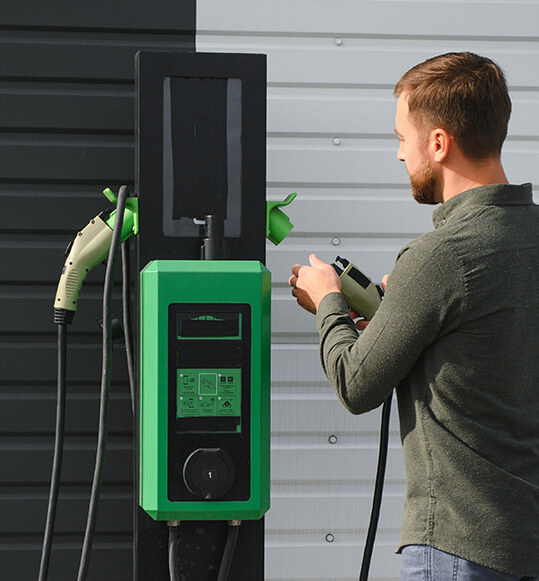X

Here’s a high-quality guide to understanding global EV charging compatibility, covering standards, connectors, and charging infrastructure

Different regions use different types of charging connectors, but most EVs are designed to work with the standard connectors used in their region.


Use apps Sunastro EV your car's built-in navigation system to find the nearest station.

An EV charging station is where you can plug in your electric car to recharge its battery. It’s like a gas station but for electric vehicles.


Established in 2013, Sunastro Group began its journey by providing high-quality battery inverters, for solar power generation and conservation. Over the years, we have steadily expanded our portfolio to accomodate the increasing power demands of the Electric Vehicle (EV) sector and to meet the growing need for solar energy solutions. At Sunastro, we believe solar energy is fundamental to sustainable development, long-term stability, and energy conservation as India progresses towards self-reliance (Atmanirbhar Bharat) in the power sector.
Learn More
We are effectively operating a business platform where we offer all-electric vehicles and EV accessories of different brands..
Learn More
We are excited to launch an exclusive eCommerce platform dedicated to solar panels, battery inverters.
Learn More
Sunastro LPG provides reliable solutions for both domestic and industrial Liquefied Petroleum Gas (LPG) needs.
Learn More

An EV charging station is a location that provides electrical power for recharging the batteries of electric vehicles (EVs) or plug-in hybrids. Stations come in different types based on charging speed and compatibility.
There are generally three types:
Most EVs come with in-built navigation systems that show nearby charging stations. Alternatively, apps like PlugShare, ChargePoint, or Google Maps can help you locate stations.
Not all EVs are compatible with every type of charger. Most use the J1772 connector (for Level 1 and 2), but Tesla has its own proprietary connector, though adapters are available. For DC Fast Charging, there are CHAdeMO, CCS, and Tesla Superchargers—each type is suited to different vehicles.